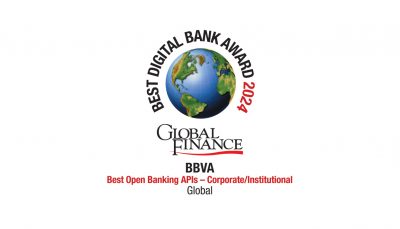While the official starting gun sounded last March, the majority of banks are still in the process of testing out their services. The European directive establishes a transition period of 18 months, meaning banks have until September 14, 2019, to adapt to the PSD2 protocol.
Although the market is not yet mature and no operators seems to have a long-term strategy yet, nor have banks been sleeping on their laurels. 84% of financial brands are already developing open banking products with a view to launching them in 2019, according to information included in Opportunity Knocks: The future of open banking, a white paper on the phenomenon drafted in partnership by Fintech futures and the British consultancy firm TLT. According to statistics from the same paper, 44% of banks are working on such products independently, while 32% have entrusted part of their strategy to external consultants. Partnering with the right company is a critical step toward success, argues TLT in the report, which often swaps the term evolution for that of revolution when describing some aspects of the impending change.
While the technology is becoming increasingly precise, banks have been harnessing open tools to identify levels of interaction. In June open banking APIs were used 1.2 million times in the United Kingdom, according to figures from the Open Banking Implementation Authority, nearly double the figure of 720,000 recorded in May. Data from PwC indicates that 71% of SMEs and 64% of adults will be using the technology by 2022. But getting there will still take some effort: fintechs must prove that they are secure and trustworthy.
One of the most striking indicators of the approaching disruption is how the industry uniformly identifies its main competitors: Google, Amazon, Facebook and Apple (GAFA). Despite these companies making voracious incursions into the payments market, the four tech giants have also been somewhat averse to accepting financial regulations in their entirety. Fintech operators stand readier to accept said standards; these operators are likewise set to represent major competitors for banks, and conversely are prepared to capitalize on their strengths in terms of designing an optimal user experience to create applications capable of redefining customer behavior, expectations and demands, as indicated by TLT in Opportunity Knocks.
2019: phase two
Transactions will not be processed via APIs until mid-2019, but there is consensus in the industry that such interfaces are the best way forward, meaning the transition is set to come in line with the PSD2 schedule. Specifically, on September 14 open banking will see the introduction of the European Banking Authority’s SCA (Strong Customer Authorisation) and CSC (Common Secure Communication) standards. The protocols will determine how banks allow access to customer data.
The new standards will play twin roles: first, they will allow for experimentation and innovation in a secure environment, and second, they will act as a stimulus to drive collaboration. According to Pinsent Masons and Innovate Finance, in their report on open banking, collaboration between banks and fintech will be central to the future of banking, while gaining consumers’ trust will be key.
Thus, collaboration will progressively open into new financial micro-segments, areas that had been unimaginable when banks and fintech firms operated individually. Furthermore, as the open banking concept evolves specialization will become more prevalent, particularly as emerging customer demands become increasingly evident. All this thanks to a combined ecosystem of platforms and financial applications capable of generating better information and distributing services more efficiently, argue Pinsent Masons and Innovate Finance.
The market is set to change shape as other businesses begin operating in the industry. 2019 will be a critical year in the transition toward open banking. All major operators will be ready for the next stage of the open banking process, in which the main winner will be customer security.
This is because trust is vital. And education will play a critical role in shoring up said trust. Data from a recent Competition and Markets Authority (CMA) survey in the United Kingdom revealed that 92% of the public had never heard of open banking. But the report from Pinsent Masons indicates that customers are likely to quickly adopt the new standards if they are offered by proven and trusted consumer brands.
Banks, financial firms and other early movers could secure significant market shares if they successfully implement models that encourage the adoption of their services by both retailers and consumers. This means persuading them to use the new services instead of traditional models.
Beyond 2019
Looking beyond 2019, at the 2020-25 period, the majority of payments are set to be automatic. It might seem the realm of science fiction, but robot consultants will be submitting our payment orders according to Banking 2025, a report from the digital banking platform Backbase.
Open banking is set to sound the starting pistol, but critical to this revolution will be overseeing conditions and establishing key protocols. Underpinned by Artificial Intelligence (AI) and Machine Learning, APIs will free consumers from the burden of controlling their finances, while opening new opportunities in terms of how they spend and invest their money.
While European regulators will be watching to see how PSD2 regulations are adhered to in open banking, the industry is already beginning to outline what might be termed PSD3, under the auspices of the Berlin Group.
Are you interested in financial APIs? Discover all the APIs we can offer you at BBVA


























